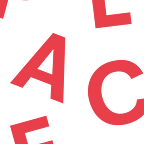The value of the learning partner
Hannah Hesselgreaves, Northumbria University
Lankelly Chase’s recently published report on the Place Action Inquiry draws from our roles as learning partners. In this role, we have been constant companions to the Inquiry since its inception in 2017. This has been a different role to one normally played by academics — more in-depth and open-ended than an academic research project, while more open-ended and developmental than consultancy. In response to the report, we thought we should reflect on our own role in the development of the Place Action Inquiry, and the value we think this role has offered.
As Learning Partners, we have worked closely with dozens of contacts across all six places within the Inquiry, and also with Lankelly Chase as an organisation. While the impact of this role has been convoluted and uncertain, looking back, we can identify some areas where a learning partner has added value, based on the descriptions of changes articulated by people the places: a summary of these can be seen here.
One aim of our involvement is to keep the role of learning active and forefront in influencing decisions made in places. In most of the places, we have an ongoing role in helping focus on learning and value it in their work. Most visibly, we have helped people establish routines and forums for learning. In Manchester, for instance, we hold a regular learning forum for Elephants Trail members to reflect on their work, and to inform subsequent action-focused meetings. We have been alongside to help embed a learning focus in new structures, for instance recently with Barking and Dagenham’s Working Group. At times we have taken quite active roles, participating in core/coordination team meetings, doing place-based research, and even participating in local decision making. For instance, we played a close and embedded role in York in the period before and during the establishment of York’s Multiple and Complex Needs network, helping the core team establish and embed this new network, and in Gateshead before the focus on system learning gained momentum.
In the areas where things have become more solid and stable — where there is a clear agenda to the work, and people have become more comfortable in their roles — a less interventionist role has been more in demand. In areas like Gateshead, York, Manchester and Barking Dagenham, we’ve played a supportive role for key contacts. This could be helping people orientate themselves in often uncertain roles, transferring ideas and approaches from one place to another, mirroring practice back to people and helping people and groups to reflect. At other times it has been more important to become a critical friend, even a challenging presence, providing critical feedback about how actions can be more inclusive, how diverse and opposing viewpoints from the system can be sought out and accommodated, and how learning can be documented and utilised in practice. In other areas, it has seemed appropriate to play no active role — some groups adopt learning as a focus independently and take this in their own direction. Some places have relationships so fraught that an external presence would be viewed with suspicion. However, some of these places have indicated a demand for the learning partner taking a convening role to bring places together and design what and how learning can be shared.
Our work in places is part of a wider supportive role for Lankelly Chase as an organisation. A significant part of our work is concerned with building a feedback loop between learning from a place, and the decisions ultimately made by Lankelly Chase. Our work in developing a learning framework for the Place Action Inquiry has served this purpose and become much more integrated with the place work. We now capture information from personal reflections (first-person action learning), group discussions about learning (second-person action learning), and communication of this learning externally through regular blogs and reports (third-person action learning).
So what can learners do, and how can they add value? As a research approach, our in-depth involvement and strong relationships have led to a deeper appreciation of the mechanics of place-based system change. The flexibility of the role has enabled us to respond to a variety of needs from places respecting the various routes toward system change. From our experience, it can be very helpful to have a partner helping to hold people to account for their learning. Without that, learning can be a neglected and under-appreciated element of working. Without all of us keeping that focus, we certainly would not have achieved the successes places demonstrate, and which are noted in the report.
